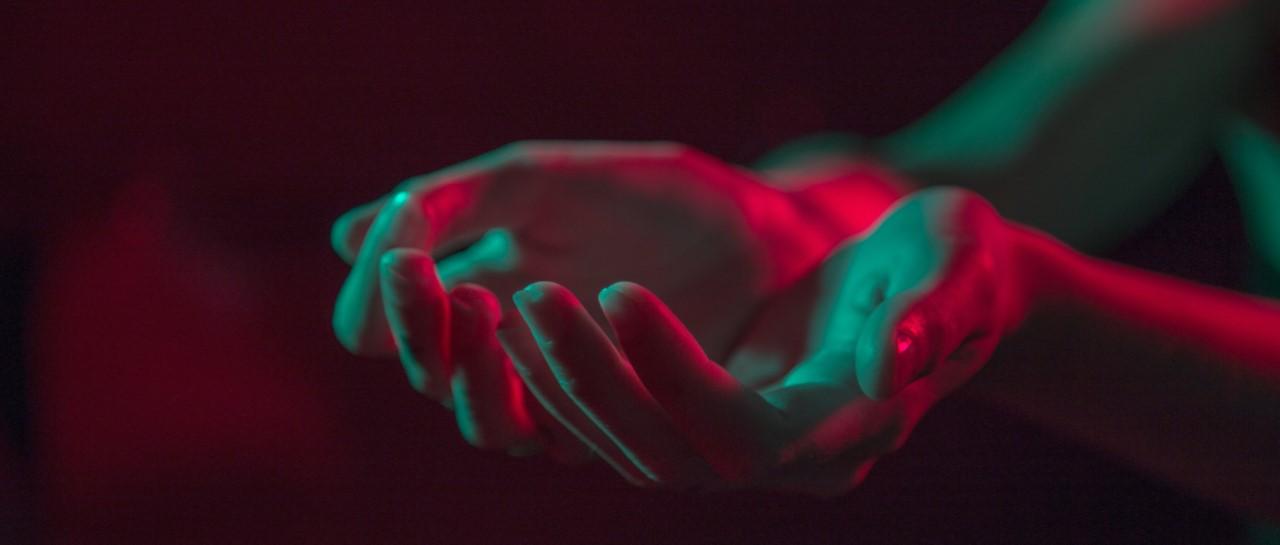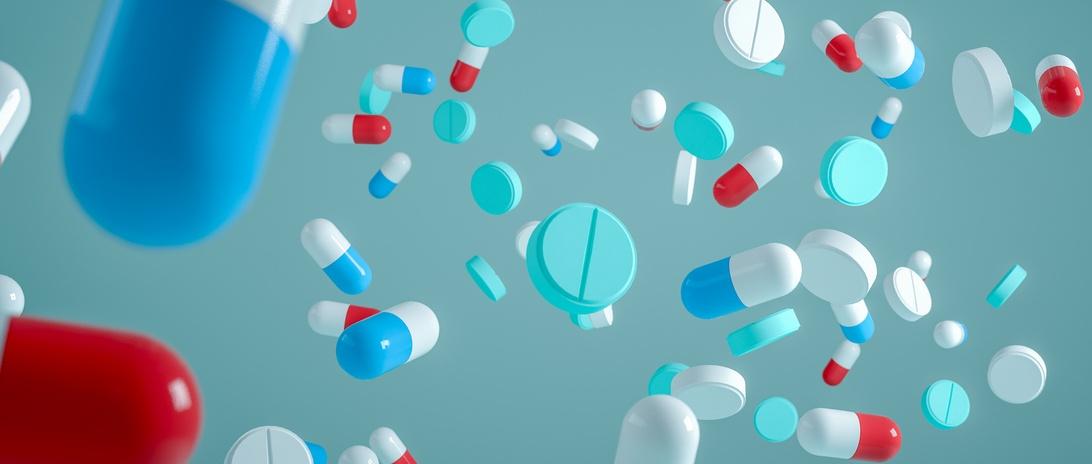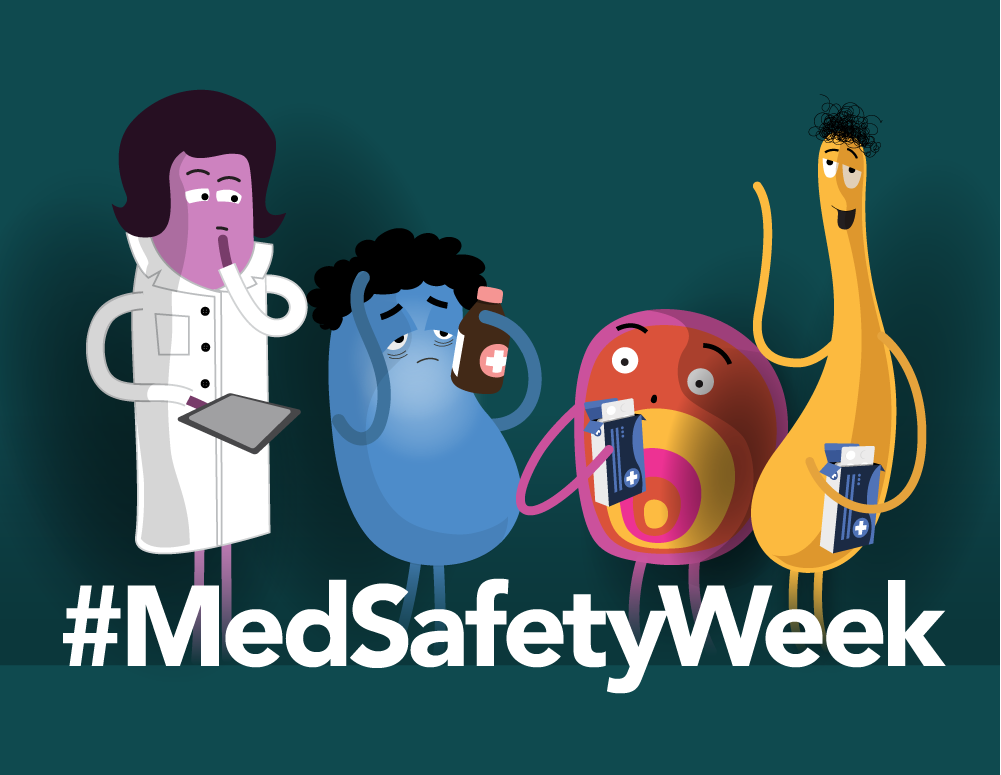
The dangers of fake drugs
Peer reviewed by Dr Sarah Jarvis MBE, FRCGPLast updated by Milly EvansLast updated 19 Feb 2020
Meets Patient’s editorial guidelines
- DownloadDownload
- Share
- Language
- Discussion
When you buy from your local pharmacy or receive your prescription, you know that you're getting a medicine that has been rigorously tested and found to be safe and beneficial for your condition. However, when you buy from some online retailers or from an unlicensed supplier, there's no guarantee that what you're buying will be real.
In this article:
Video picks for Medicine information
We buy medicines with the expectation that they'll help us feel better. But a growing market of fake medicines, test kits and medical devices is putting all of us at risk.
Rules and regulations
"Medicines are not ordinary consumer goods and strict legal requirements apply to their sale, supply, manufacture, distribution, advertising etc," says a spokesperson for the UK Medicines and Healthcare products Regulatory Agency (MHRA). "A medicine must hold a Marketing Authorisation (MA) to be sold and supplied legally in the UK. This provides a guarantee that the product meets set standards of quality, safety and effectiveness.
"Medicines that do not hold an MA cannot be guaranteed to meet quality and safety standards. There is no way of knowing what they contain or what their effect on your health may be."
With fake medicines, which could be made by anyone, with any ingredients, in any conditions, there's no testing or regulation to ensure that what you're buying is real or safe. As well as containing the wrong active ingredient, or the wrong amount of the right active ingredient, some counterfeit medications have even been found to contain toxic materials such as paint, printer ink and arsenic.
"Medicines sourced from outside the authorised supply chains offer no such guarantee and consequently pose risks to patient health," says MHRA's spokesperson. "There is an incalculable number of websites offering to supply medicines - many of these are trading illegally and with no involvement of a medical professional. The medicines supplied are unlikely to be the authorised versions. Not only are they operating illegally but they are operating with a blatant disregard for public health."
What's the risk?
Back to contentsNo country is unaffected by fake medicines. What was once considered a danger limited to low- and middle-income countries has become a global issue. The rise of the internet and access to manufacturing equipment has made it easier than ever for illegal distribution to happen on a large scale.
The risk from fake medicines continues to be higher in low- and middle-income countries where the World Health Organization (WHO) estimates that one in ten medical products are fake or sub-standard. People living in countries with weak, non-existent or inaccessible health systems or in areas of conflict or unrest, where medicines may not be readily available, are more likely to turn to alternative suppliers who may put their health at risk.
Each year, an estimated 250,000 children around the world die as a result of fake malaria and pneumonia drugs alone. Low-quality or counterfeit vaccines, antibiotics and medical equipment contribute to further deaths.
Fake drugs can kill or harm you even if you don't take them yourself. The fake antibiotic drugs on the counterfeit market often contain the wrong antibiotic or low doses of the right one. This won't cure an infection and contributes to antibiotic resistance - a growing and deadly threat around the world.
Continue reading below
A big market
Back to contentsErectile dysfunction (ED) drugs (like Viagra) are among the most commonly faked drugs out there.
In the UK, ED medication is available only after speaking with a pharmacist or after taking a questionnaire from an online pharmacy. The questions the pharmacist will ask help them decide whether the medication is suitable. The consultation can alert them to any underlying health problems which may be the cause of erectile dysfunction, or any conditions which may put you at risk of an adverse reaction.
Embarrassment about having to speak to someone about a sexual problem or being unable to afford the medication are among the reasons some turn to illegal options. But ED medication is also being misused by some who don't need it, either as party drugs or as a redundant sexual enhancement, which could put them in danger. In these scenarios, they're more likely to turn to an illegal dealer or online distributor, since a pharmacist would not be consider them eligible for the medication.
Those creating fake drugs know that there's a market for them and so will do whatever they can to keep their own production costs down, to bring in a bigger profit. Some of the ingredients reported to have been found in counterfeit ED drugs include talcum power, drywall, diabetes drugs, amfetamines and even a powerful antibacterial medication called metronidazole.
Keeping yourself safe
Back to contentsThe safest way to get your medicines is to buy them from a verifiable and authenticated distributor, whether that's your pharmacist or a clinic. Never buy medication over social media, from members of the public or untrustworthy websites.
"We do not recommend people attempt to spot fake medicines by examining the drug or the packaging - it is not always possible to do so! Buy from a legitimate source that can be checked," says MHRA.
As some counterfeit products are indistinguishable from the real deal, don't risk using them if you have any concerns that the medication might be fake. Occasionally, there are tells which can help to identify these products. According to the WHO, these might include:
Incorrect packaging, including spelling mistakes and poor quality.
Mismatched details on the outer and inner packaging.
Discoloured, degraded or unusual-smelling medicine.
Medical devices missing the CE mark and notified body number (four digits displayed next to the CE mark).
You might also be able to tell if a retailer is selling fake products if they are offering suspiciously low prices, or prescription-only medications without a prescription, or their website looks suspicious, perhaps with spelling mistakes or spam advertising.
Continue reading below
Look for the logo
Back to contentsMost importantly, any legitimate online retailer of medications will have a verification logo.
"An online retailer must register with the MHRA and display a green cross logo on all pages of the website offering to supply medicines to the public at a distance," explains MHRA's spokesperson. "The MHRA has a list of registered suppliers which can be viewed on our website and individual sellers can be checked by clicking the logo and connecting to the MHRA's list for authentication of the seller."
There's no denying that many people do safely get their drugs or prescribed medications from online pharmacies - but only if they are registered and regulated online services. It makes getting medication easier, faster and more accessible for those who aren't able to get to their local pharmacy. And some medications aren't readily available on the NHS - some users of PrEP, a medication to prevent HIV, buy their tablets online because it's currently only available through trials. But you have to make sure to buy online medications safely.
"When people are purchasing medicines online, we recommend people look for the green cross logo and check our Medicines Seller Register [to establish whether] the pharmacy or online retailer is legitimate. The logo guarantees that the medicines come from a reputable supplier but does not endorse other services available through the site."
If you have any concerns or suspicions about the quality or authenticity of medicines or medical devices bought online, you can report them to the MHRA using the Yellow Card Scheme.
What's being done to fight the fakes?
Back to contentsWith the public's health at risk, what's being done to tackle the problem? MHRA works with various organisations including Border Force, the Police and UK and international law enforcement agencies to tackle the manufacturing, import, export and sale of fake drugs and medical devices.
"MHRA has an ongoing #FakeMeds campaign, which aims to protect public health by raising awareness of the risk associated with purchasing fake medicinal products and medical devices online," explains their spokesperson. The campaign uses TV, radio and social media to spread information about the risks and to raise public awareness. "We are currently focusing on fake self-testing STI kits. We have seized nearly 12,000 fake STI and HIV self-testing kits since 2015."
Operation Pangea is a global initiative led by Interpol to specifically fight the online sale and distribution of counterfeit, illicit and unlicensed medical products and to raise awareness of the dangers of these products. Since its establishment in 2008, Operation Pangea has been responsible for the removal of more than 105 million units of fake drugs from circulation and more than 3,000 arrests globally.
The EU Falsified Medicines Directive has also placed additional controls on manufacturers, distributors and sellers. These measures are incorporated into UK law.
So, should you be concerned about fake medications? Whilst they are a huge global threat, you can protect yourself by following MHRA's advice and only buying from reputable sellers, even (perhaps especially) if you think you've found an amazing deal online. As MHRA's spokesperson puts it: "You can't put a price on your health."
Patient picks for Medicine information

Treatment and medication
Antibiotic resistance: a hidden health crisis
If you have a bacterial infection, your doctor may prescribe antibiotics. However, unnecessary use of antibiotics can weaken their effectiveness, leading to antibiotic resistance and making future infections harder to treat. Doctors and other appropriately qualified health professionals will only prescribe antibiotics where there is a critical need.
by Victoria Raw

Treatment and medication
What is #MedSafetyWeek and MHRA Yellow Card scheme?
If you had a bad reaction to a medicine or medical device, or suspected it was unsafe in any way, would you know how to report it? For this #MedSafetyWeek we find out about the MHRA Yellow Card scheme - a quick and simple way of reporting suspected problems with medicine in the UK. A small action from you can keep our medicines reliable, and prevent others from future harm.
by Victoria Raw
Continue reading below
Article history
The information on this page is peer reviewed by qualified clinicians.
19 Feb 2020 | Latest version

Ask, share, connect.
Browse discussions, ask questions, and share experiences across hundreds of health topics.

Feeling unwell?
Assess your symptoms online for free
Sign up to the Patient newsletter
Your weekly dose of clear, trustworthy health advice - written to help you feel informed, confident and in control.
By subscribing you accept our Privacy Policy. You can unsubscribe at any time. We never sell your data.